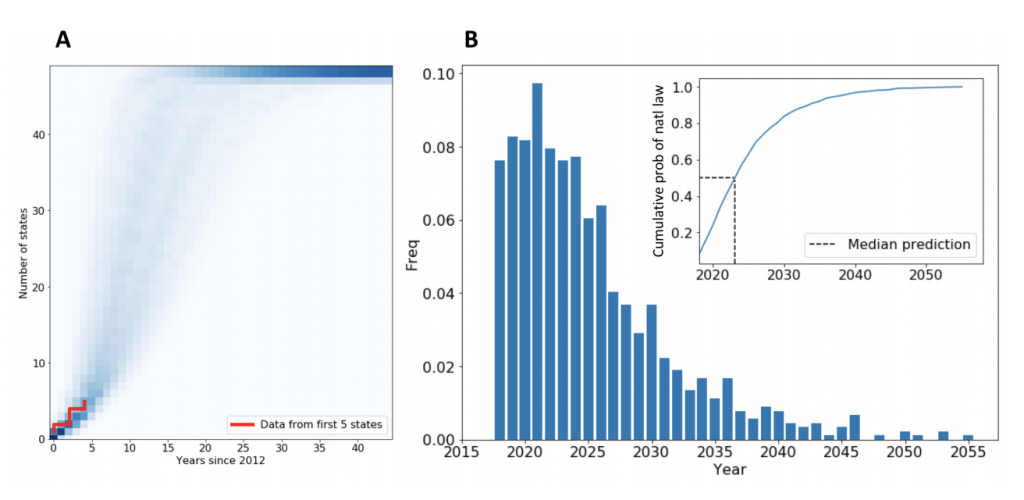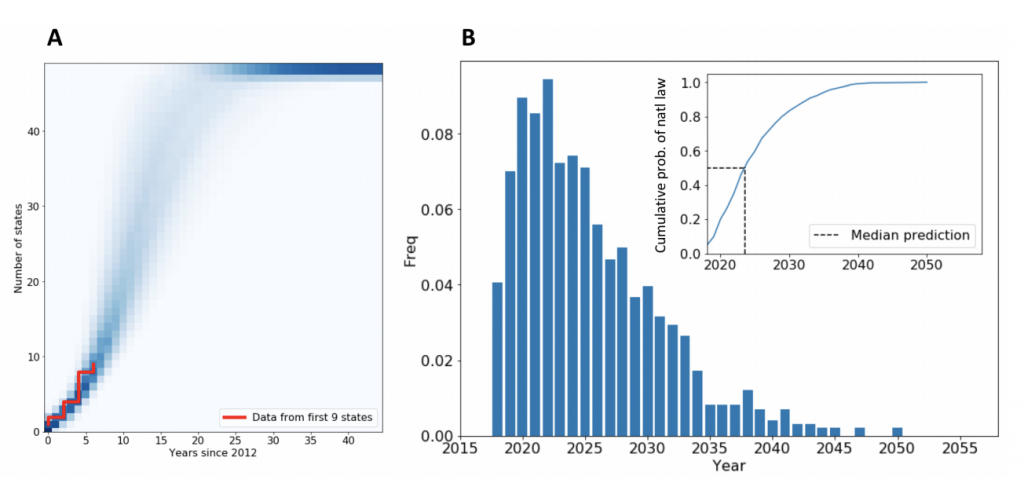There’s been plenty of speculation attempting to predict when the successful state-level marijuana legalization movement will translate into federal action. But in general, all this prognostication has been pretty unscientific… until now.
When will marijuana finally be fully legalized nationwide?
Researchers at the University of Colorado, Boulder, and the Santa Fe Institute recently compiled a data set based on the trajectories of 170 other policies that started at the state level and eventually became federal law—and then used predictive models to extrapolate that data to the cannabis question.
There were a few different ways the team thought they might be able to predict the outcomes of various policies—including adult-use marijuana legalization and “stand your ground” laws—but the one that showed the most promise was a “simple diffusion model, based on classic logistic growth.”
That form of analysis takes into consideration the “cumulative number of state-level adoptions of a policy,” which the researchers found to be “reasonably predictive of when a policy becomes national.”
The methodology behind the analysis is a bit tricky. You can read all about it the paperpublish this week, but for simplicity’s sake, here’s what the team predicted when it comes to cannabis reform:
If you’re looking at the timing of state-level marijuana laws based on the first five states to legalize for adult-use, then the logistic growth analysis indicates that full cannabis legalization will most likely be made federal law in 2021.

Based on the timing of the first nine states to fully legalize, however, the analysis gets pushed back a bit, forecasting federal legalization in 2023.

Both models showed a strong likelihood of federal marijuana legalization “by the end of 2022,” though. The probability that it would happen after 2028 is lower than 30 percent.
In other words, the idea that cannabis won’t be legalized within the next 10 years is pretty far-fetched, based on the analysis.
Read more from the source: MarijuanaMoment.net
Photo courtesy of Philip Steffan.


